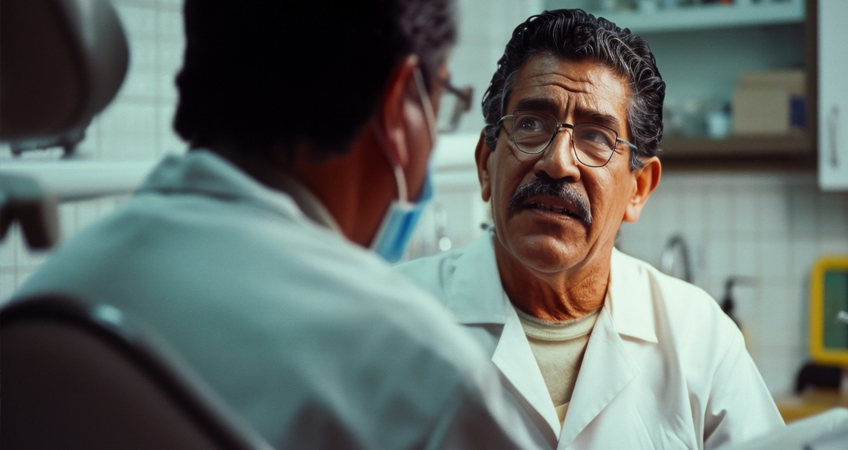Health Awareness That Saves Lives
The Hidden Crisis in Rural Health
Health is often taken for granted until it begins to fail. In rural India, lack of awareness and resources means families live with constant risk. Preventable illnesses become life-threatening, malnutrition weakens children before they even begin school, and silence around topics like menstrual hygiene traps women and girls in cycles of suffering.
At Shyama foundation unit of Shyama Trust, we believe that health is not a privilege for a few but a right for all. The solution is not always complicated or expensive. Many times, the missing link is awareness. When people know how to take care of their bodies, prevent infections, or seek timely treatment, they live longer, healthier, and more dignified lives.
Why Health Awareness Matters
Healthcare is not just about hospitals and doctors. It begins in households and communities with knowledge of safe practices, nutrition, and hygiene. A mother who learns about balanced diets can prevent her child from falling into anemia. A teenager who understands menstrual hygiene can continue her studies without interruption or stigma. A farmer who knows the importance of regular checkups can detect illnesses early, avoiding costly treatments later.
Small changes in awareness create big shifts in health outcomes. In fact, according to several studies, community health awareness programs have reduced maternal and infant mortality, improved vaccination rates, and decreased the spread of preventable diseases.
The Barriers to Good Health
Despite these clear benefits, rural communities face persistent challenges:
- Lack of information: about nutrition, hygiene, and preventive care.
- Cultural taboos: around discussing menstruation, reproductive health, or mental health.
- Financial limitations: that prevent families from seeking timely medical help.
- Geographical distance: from hospitals and clinics.
These challenges mean that illnesses often go untreated until they become severe. Worse, myths and misinformation take the place of science, leading families to depend on ineffective or even harmful remedies.
Shyama foundation unit of Shyama Trust’s Health Initiatives
Our health programs in Narhan and surrounding villages are built on a simple belief: when people are informed, they are empowered. We organize health awareness camps, distribute sanitary pads, and hold sessions on nutrition, hygiene, and preventive practices.
Some of our key initiatives include:
- Health Camps: where families can receive free checkups and learn about simple, affordable ways to improve daily health.
- Sanitary Pad Distribution Drives: that not only provide resources but also normalize open conversations about menstrual health.
- Nutrition Awareness Sessions: that teach families how to use local, affordable foods to create balanced meals.
- Workshops on Clean Water and Hygiene: which highlight the importance of handwashing, safe storage of drinking water, and sanitation.
Breaking the Silence on Menstrual Health
One of the most transformative initiatives has been our focus on menstrual hygiene. In many villages, girls are forced to miss school during their periods due to lack of sanitary pads or awareness. This leads to absenteeism and often dropout.
By distributing sanitary pads and holding open discussions, we not only address a health need but also dismantle the stigma around menstruation. Mothers who once avoided the topic now confidently guide their daughters. Girls attend school without interruption and with dignity. This one change has a direct impact on education, health, and confidence.
Nutrition as a Foundation for Health
Another powerful area of change has been nutrition awareness. Many rural families eat meals that fill the stomach but do not meet the body’s nutritional needs. By teaching simple adjustments—like including locally grown vegetables, pulses, and iron-rich foods—we have seen significant improvement in children’s energy, focus in studies, and overall health.
In one session, mothers were surprised to learn that inexpensive local greens carried more nutritional value than costly packaged foods. Such knowledge is practical, sustainable, and deeply impactful.
Stories That Inspire
The true success of these initiatives is visible in individual stories.
- A group of adolescent girls who once missed a week of school each month now attend classes consistently after receiving sanitary pads and guidance.
- Mothers who learned about nutrition during our sessions have introduced new foods into their family diets, reducing cases of weakness and frequent illness.
- A farmer who attended one of our camps went for a medical checkup and caught early signs of diabetes, saving himself from later complications.
Each story proves that awareness is not just information. It is transformation.
The Role of Donors and Volunteers
None of this would be possible without the generosity of donors and the dedication of volunteers. Donor contributions fund the sanitary pads, medical supplies, and awareness materials. Volunteers bring these initiatives to life, leading conversations, distributing resources, and offering the warmth of human connection that makes people trust and listen.
Every rupee given and every hour shared creates measurable change. It saves children from illness, keeps girls in school, and strengthens families against preventable health crises.
The Larger Vision
Health awareness is not charity—it is justice. Every person deserves the knowledge and resources to live a healthy life. When rural communities are empowered with information, they no longer depend solely on outside aid. They take charge of their own wellbeing, making informed choices that protect their families for generations.
India’s growth cannot be measured only in GDP or urban infrastructure. It must also be seen in villages where children grow up strong, women live with dignity, and families no longer fear preventable illnesses. Health awareness is the quiet revolution that makes this possible.
